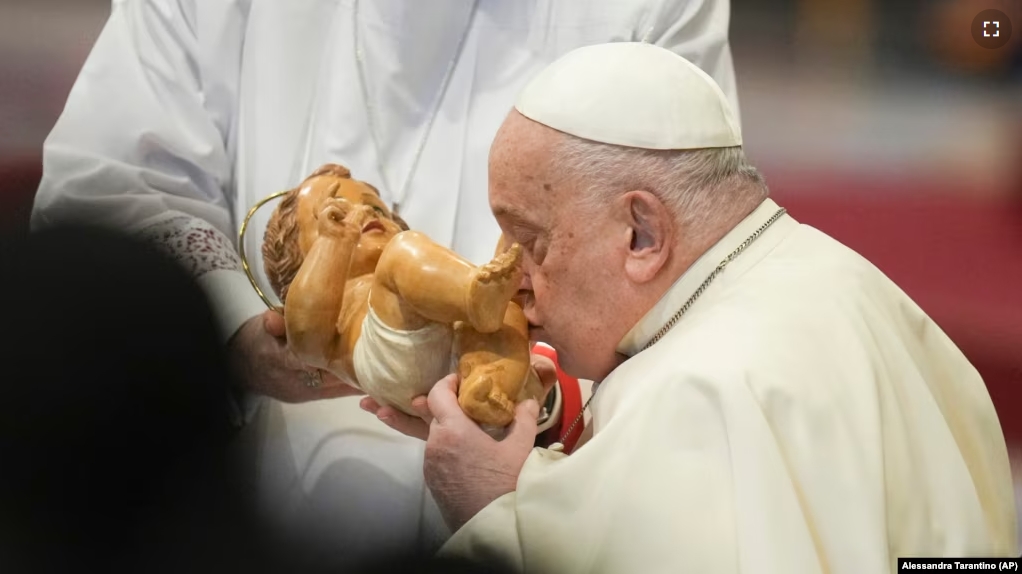Pope Francis has named the first woman to lead a major office of the Roman Catholic Church. On Monday, he chose an Italian nun, Sister Simona Brambilla, to head the department responsible for all the church’s religious orders.
The appointment is the latest effort by Francis to give women more leadership positions in governing the church. In the past, women have been named to secondary leadership positions in some church offices. But the pope’s latest appointment is the first time a woman has been named head of a department of the central governing body of the Roman Catholic Church.
Official media for the church reported “Sister Simona Brambilla is the first woman prefect in the Vatican.” A prefect is a chief government officer in the church. Since the Vatican – the place in Rome where the church is headquartered – is officially considered a country, prefect leaders serve like officials in other governments.
The position held by the 59-year-old Brambilla is one of the most important in the church. It is officially known as the Dicastery for the Institutes of Consecrated Life and Societies of Apostolic Life. This means Brambilla is now responsible for every Catholic religious order churchwide.
Pope Francis also named a male church official, Ángel Fernández Artime, as a co-leader to Brambilla. The reason for having a co-leader is that only men can lead religious services, known as masses, in the Roman Catholic Church.
Brambilla has been a member of the Consolata Missionaries religious order. Since last year, she had served as secondary leader in the religious orders department. She will be replacing the current prefect, retiring Cardinal Joao Braz de Aviz, who is 77 years old.
Brambilla is a nurse who worked as a missionary in Mozambique and led a religious order from 2011-2023. In 2023, Francis appointed her to be secretary of the religious orders department.
Francis made Brambilla’s appointment possible with reforms made in 2022 to the church’s founding constitution. The changes permit individuals who are not authorized to lead church services, including women, to head a dicastery and become prefects. While the constitutional changes give women more possibilities to serve, they are still not permitted to officially lead church services.
Catholic women already do much of the church’s work in schools and hospitals and teach many young members. But Francis has continued a longtime ban on women being local church leaders, called priests. He also does not support women becoming deacons, a position just below a priest.
However, under Pope Francis’ leadership, there has been a marked increase in the number of women working in church positions since he was elected in 2013. The Vatican News reports the percentage of women in leadership positions rose from 19.3 percent in 2013 to 23.4 percent today.
Among the women holding high leadership positions are Sister Raffaella Petrini, the first-ever female secretary general of the Vatican City State. She is responsible for the territory’s health care system, police force and Vatican Museums.
Another nun, Sister Alessandra Smerilli, is the second-in-command in the church’s development office. Several other women have been appointed to under-secretary positions. These include a French nun, Sister Nathalie Becquart, who serves as an advisor to the pope.
I’m Jill Robbins.
Nicole Winfield reported this story for the Associated Press. Jill Robbins adapted it for Learning English.
______________________________________________
Words in This Story
nun – n. a woman who is a member of a religious community and who usually promises to remain poor, unmarried, and separate from the rest of society in order to serve God
prefect – n. a chief officer or government official who is responsible for a particular area in some countries
nurse – n. a person who is trained to care for sick or injured people and who usually works in a hospital or doctor’s office
missionary – n. a person who is sent to a foreign country to do religious work (such as to convince people to join a religion or to help people who are sick or poor)
secretary – n. a government official who helps a minister, an ambassador, or the like
authorize – v. to give official permission to do something
